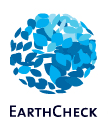

Hacienda Uayamón
Overview
Type of destination:
- City
- Forest / rainforest
- Indigenous community
- Historic site
Type of accommodation:
- Hotel / inn
- Resort
Rates: (in US dollars)
$150 and up
Target Market:
Mid range
Description
During the 1920s, the sisal industry flourished in southeastern Mexico, with exports providing the main source of income for the region. At the heart of this economy were the large estates and plantations that not only produced the sisal, but also featured haciendas, or mansions, that offered work, housing, schools, and in some cases, even hospitals for local inhabitants. Their magnificent architecture featured designs by famous European architects, and the haciendas also invested in the local communities with a vision of endless prosperity. However, by the beginning of the 1990s the sisal haciendas lay abandoned and the nearby communities lived in extreme poverty.
With the aim of developing a successful sustainable tourism project, we set about restoring the beautiful sisal haciendas of the Yucatan Peninsula and bringing their architectural splendor to the attention of the most discerning travelers. This marked the beginning of our social and environmental commitment to the region and the rural Mayan communities of the Yucatán and Campeche. We invite you to share with us the fascinating history and cultural value of this region.
The Uayamón ranch was founded during the final decade of the 16th century, when it was used to raise beef cattle and pigs. In 1685, it was sacked by the pirates Graff and Grammont. In the 19th century, Uayamón became one of the most important haciendas in the state of Campeche due to its varied production: livestock, corn, sugar cane, logwood (dye wood), and sisal. In 1877, it was the second-most important hacienda in the entire state of Campeche.
Hacienda Uayamón opened as a hotel in December 2000, after two years of restoration work by a team of architects and specialists. The restoration was done in the same spirit of the original owner. The buildings provide a mixture of contemporary and traditional styles, highlighting the architectural and artistic value of the haciendas.
The most valuable part of this hotel-hacienda project has been the social aspect, with the systematic recruitment and training of local workers, first for the construction work and subsequently for different positions in the hotel.
We offer guests specialized bird-watching tours with experts, who together with the hotel’s gardeners, offer a unique experience, sharing their ancestral knowledge of the local flora and fauna. The gardeners have also received professional guide training and offer tours at Hacienda Uayamón.
The nursery produces ornamental plants and vegetables for use in the hotel’s restaurant. The menu includes exquisite dishes prepared with freshly harvested local fruits and vegetables.
Rooms
Our 12 suites are surrounded by jungle-like gardens. These spacious rooms are approximately 590 ft2 (55 m2).
Non-smoking rooms are available.
In addition to the features listed for this hotel (see below), the rooms have:
- 1 king-size bed or 2 queen-size beds
- Egyptian cotton sheets
- Goose down pillows
Amenities
- Air conditioning
- Event space (conferences / parties)
- Hot water
- Internet connection
- Laundry service
- Pool
- Private bathroom
- Restaurant
- Spa
- Telephone
- Television - LCD 32"
- Transportation - to and from the airport
Other:
- Scales
- Hairdryer
- Mini bar
- iPod dock
- Alarm clock
- Safe
- Nursery
- Vegetable garden
Activities
- Adventure sports
- Biking
- Canopy exploration
- Eco / nature / wildlife
- Educational / research / volunteering
- Guided tours
- Horseback riding
- River rafting / kayaking
- Visits to conservation projects
- Walking / hiking
Other:
- Specialized tours for bird and wildlife watching
Making a Difference
Number of employees: 27
Percentage of local employees: 91 %.
Our social and environmental commitment to Mexico began more than 15 years ago, when we started restoring the ruins of the sisal haciendas. We work to serve as a link between the present and the past Mayan worlds; to create new opportunities to support the development of the local community; to contribute to the balance between the environment, economy, and cultural values; and opportunities to achieve social well-being and the sustainable economic development of the region.
We are continually working to conserve our local environment and minimize our ecological footprint. Some of our key efforts include:
- A detailed inventory of the plants found on the hacienda.
- Extensive jungle-type garden areas that include more than 120 local plant species.
- We measure and minimize:
- Energy consumption - Hacienda Uayamón was the first hotel in the group to install solar panels to heat water in the rooms, in an effort to considerably reduce energy use. In 2010, the hotel used 15,305 KWH less vs. 2009, which represents 71,223 metric tons of CO2 not emitted into the atmosphere.
- Potable water consumption - reduced by 5,983 cubic meters (2010 vs. 2009).
- Wastewater
- Solid wastes (inorganic and organic)
- Proper management of hazardous substances and wastes
In 2002, in response to the desolate panorama left by Hurricane Isidora as it swept over the Yucatán Peninsula, we reinforced our social commitment and created the Fundación Haciendas del Mundo Maya, A.C., a non-profit organization that aims to strengthen the identity, recognition, and revival of Mayan culture and overcome poverty by promoting education, health, and sustainable development opportunities with the participation of the local population.
The interdisciplinary staff at the Fundación encourages the participation of local residents in the design and execution of sustainable development projects that encourage conservation and the appropriate use of their natural resources.
We work with community groups and support their efforts to generate alternative sources of income. We help to create local businesses that are organized into sustainable cooperatives by helping them to secure financing and contributing training, tools, equipment, and market research. Through the cooperatives we aim to generate profits, make social and economic improvements, empower rural Mayan women, help farmers adopt innovative techniques, and build capacity for business administration.
Examples of the above include:
- The amenities and products used in the hotel are handmade by artisans belonging to the local cooperatives supported by the Fundación. These include the decorative items found in the restaurant, the rooms, and bathrooms, as well as the body lotion, bath soap, conditioner, and shampoo, which contain natural ingredients such as aloe vera and cucumber.
- Fundación Haciendas del Mundo Maya, in coordination with the government program Oportunidades, works with the community health center to implement campaigns and give talks on disease prevention such as oral health, personal hygiene, environmental health, waste collection and recycling, and to promote the revival of traditional medicine and the use of Mayan herbs in primary healthcare. At present, 33 herb species are grown on the premises. In addition, a local assistant received training in ancient Mayan wisdom: taking from nature only what is needed to live a balanced and healthy life.
- We worked with local residents to create a community library to improve the quality of education services in Uayamón. The library is used to hold workshops (spelling, reading-writing, reading comprehension), training courses and summer courses, and as a meet place for children, young people, and adults. It also provides students with assistance in doing their homework and works to promote and preserve the Mayan culture through courses on drawing, painting, dance, traditional games, and the Maya language. The library offers a book lending service and has computers with Internet access.
- Environmental health campaigns were implemented with 89 local families and the municipal authorities.
- The Fundación supported an anti-rabies vaccine program for dogs, promoted and executed by the town council.
- We support projects that generate income for local families and create micro-enterprises organized into sustainable cooperatives. We provide assistance in securing financing and contribute some of the resources required for training, tools, equipment, World Fair Trade Organization certification, and support help identify markets that provide a fair price for their products.
- The Fundación monitors the workshops’ production, quality, administration, and marketing, and promotes the fair trade of jewelry made from seeds and horn. These handicrafts are produced by local women with the support of well-known designers like Sandra Gutiérrez, (Mexico) and Roxana Liendro (Argentina), resulting in unique pieces that combine traditional Maya techniques and materials with the latest designs:
- Items have been designed using new seeds such as hazelnut and cocoyol. Cocoyol seed has been highly prized since the times of the ancient Maya and was once used as currency.
- Hacienda Uayamón has a Taller Maya boutique selling products made by craftswomen from Uayamón and other local communities.
- The craftswomen increased their volume of production by 34% over last year. In 2009, 487 products were sold with a value of 74,081.89 pesos, while in 2010, 651 products worth 122,847.80 pesos were sold. The average monthly income per artisan is approximately US$200; this represents an increase of 633% over 2009 income.
- Hacienda Uayamón created a spa for local therapists, which led to the emergence of a cooperative that offers spa services to the hotel. In 2010, the therapists were registered in the national social security system. One of the unique features of the spa is its therapists, who have inherited knowledge of the ancient Maya healing practice known as “sobada” and have the ability to heal using their hands. These women pass on their skills to the younger women in their communities, sharing their wisdom by disseminating these healing practices, and offering guests the opportunity to enjoy a magical and unique experience that combines spiritual relaxation and ancient Maya traditions. They provided a total of 236 services contributing 105,318.31 pesos to the cooperative. Each therapist obtained an average monthly income of 4,015.00 pesos, an increase of 19% over 2009 income.
We invite you to join our efforts to benefit the local people by supporting small local farmers, eating food in the restaurant, and buying handicrafts in the hacienda’s boutique.
Rates
$150 and up
For more information about rates, please visit:
- www.starwoodhotels.com/luxury/property/overview/index.html?propertyID=1376&EM=VTY_LC_1376_UAYAMON_PROP_OVERVIEW (available in English, French, German, Spanish and other languages).
Getting There
Nearest international airport: Mérida (MID)
Nearest local/national airport: Campeche (CPE)
Travel time to nearest airport: Located 25 minutes from the Campeche airport and two hours from Mérida International Airport.
Additional Information
Awards or Recognitions
- 2010 Global Vision Award from Travel + Leisure magazine in the Artisan Revival category.
- 2009 World Saver’s Award from Conde Nast Traveler.
- Investor in People Award Winner from the Tourism for Tomorrow Awards, given by the World Travel and Tourism Council.
- TO DO! 2007, a prize awarded during the World Tourism Fair in Berlin, Germany.
- Featured in “The Stay List: 150 Hotels You’ll Love” in National Geographic magazine, April 2008.
Files
- Hacienda Uayamón, un destino sostenible - Detailed information about Hacienda Uayamón and its commitment to sustainability. In Spanish.
Date This Information Was Provided
September 2011.













Photos courtesy of Hacienda Uayamón, Mexico, for SustainableTrip.org.
Contact Information
Carolina Medellín
Sustainable Tourism Manager
Km 129, antigua carreterra Merida-Campeche
Santa Rosa
Municipio de Maxcanú, Yucatán
Mexico
Tel: +52-55/5257-0097
Ext. 105; 106; 308
Fax: +52-55/5257-1447
www.thehaciendas.com;
www.fundacionhaciendas.com
Certification

EarthCheck
Sustainability level: Silver
Date: December, 2011
- Hacienda Uayamon in Campeche has 44 reviews

